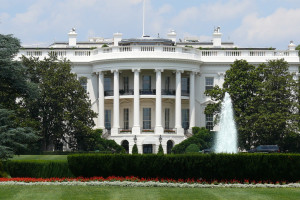TRANSCRIPT: Press Conference of President Obama and Prime Minister Renzi of the Republic of Italy [excerpt re Russia]

The White House
Office of the Press Secretary
October 18, 2016
Press Conference of President Obama and Prime Minister Renzi of the Republic of Italy (excerpt re Russia)
PRESIDENT OBAMA: Well, I’m going to be a little more subdued in my discussions of the Republican nominee in this context than I might be on the campaign trail. But let me just speak broadly about Russia.
When I came into office, Russia, under the previous administration, had invaded parts of Georgia, had created a frozen conflict there. There was a new President, and we tried to initiate a more constructive path with respect to U.S.-Russia relations. And I think we showed Russia plenty of respect, acknowledging enormous differences and different values, but also trying to find ways in which we could cooperate together.
We initiated the New START treaty. We assisted Russia with respect to its ascension to the WTO. We worked on some common international challenges together. And when the previous President was replaced with Mr. Putin, I met with him and we discussed again ways in which we could constructively work together.
The challenge that we’ve had with Russia is very much centered on Russian aggression in some very particular areas around the world. In Ukraine, where they have engaged in similar conduct to what they did in Georgia, and even there, we’ve tried to broker, and work with the Europeans to broker, a Minsk agreement that would peacefully resolve those issues.
In Syria, one of my earliest meetings with Putin was to suggest to him that if Assad stayed in power, given the brutality with which he had treated his own people, you would see a civil war that would not be good for the Syrians, certainly, but would not be good for the world anywhere. Rather than to work with us to try to solve the problem, he doubled down on his support for Assad, and we know the situation that exists there.
So any characterization that somehow we have improperly challenged Russian aggression or have somehow tried to encroach on their legitimate interests is just wrong. And Mr. Trump’s continued flattery of Mr. Putin and the degree to which he appears to model many of his policies and approaches to politics on Mr. Putin is unprecedented in American politics, and is out of step with not just what Democrats think, but out of step with what, up until the last few months, almost every Republican thought, including some of the ones who are now endorsing Mr. Trump.
So you’ll have to explain to me how it is that some of the same leaders of the Republican Party who were constantly haranguing us for even talking to the Russians and who consistently took the most hawkish approaches to Russia — including Mr. Trump’s selection for Vice President — now reconcile their endorsement of Mr. Trump with their previous views.
The bottom line is, is that we think that Russia is a large, important country with a military that is second only to ours, and has to be a part of the solution on the world stage rather than part of the problem. But their behavior has undermined international norms and international rules in ways that we have to call them out on. And anybody who occupies this office should feel the same way, because these are values that we fought for and we protected.
We can’t go around talking about human rights, or freedom of the press, or democracy, or freedom of religion, or nondiscrimination, or basic laws of war, or the sovereignty and territorial integrity of countries no matter how small, and then extoll the virtues of somebody who violates those principles.
And Mr. Trump rarely surprises me these days. I’m much more surprised and troubled by the fact that you have Republican officials who, historically, have been adamantly anti-Russian and, in fact, have attacked me for even engaging them diplomatically, now supporting and, in some cases, echoing, his positions. It’s quite a reversal. You’ll have to ask them how to explain it.
With respect to the State Department and the FBI reports, I think you’ve heard directly from both the FBI and the State Department that the notion or the accounts that have been put out there are just not true. And you can question them again, but based on what we have seen, heard, learned, some of the more sensational implications or appearances, as you stated them, aren’t based on actual events and based on what actually happened, and I think derive from sort of overly broad characterizations of interactions between the State Department and the FBI that happen a lot and happen between agencies.
I think that covers me.
[featured image is file photo from different occasion]
